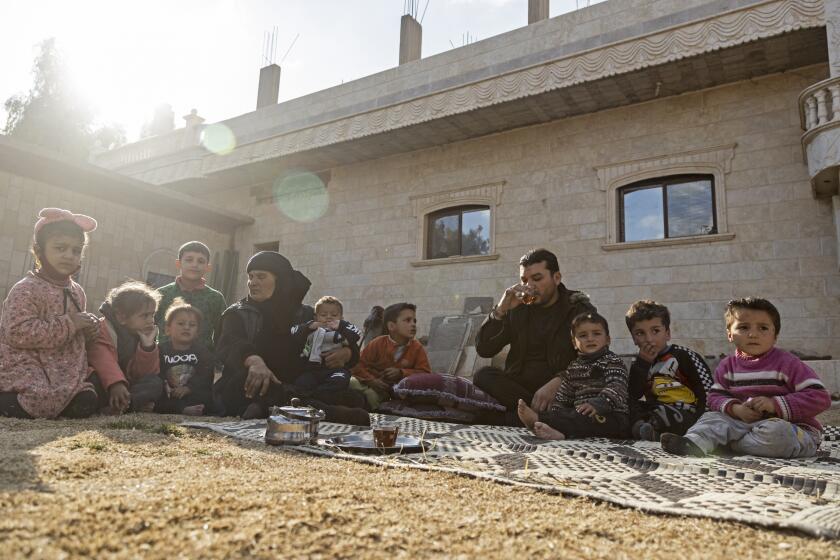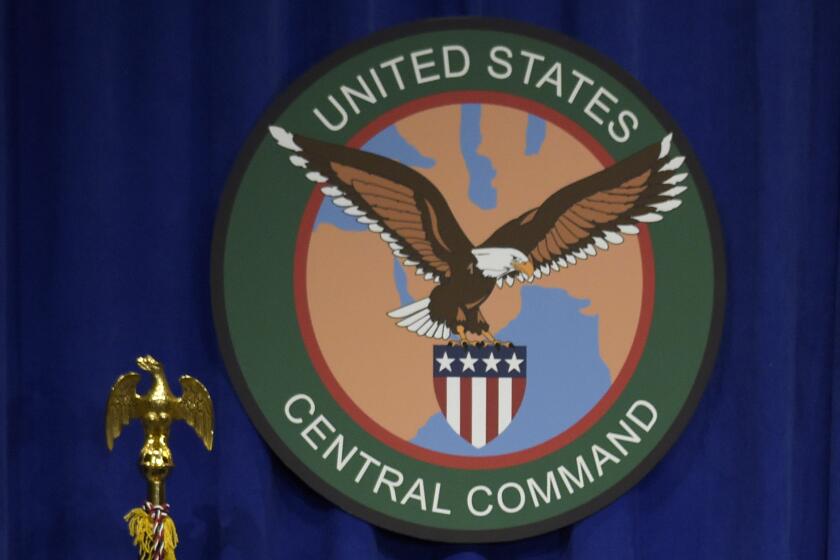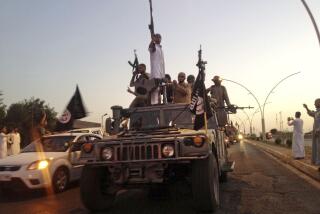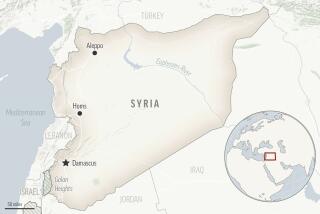Islamic State says leader Qurayshi killed in battle
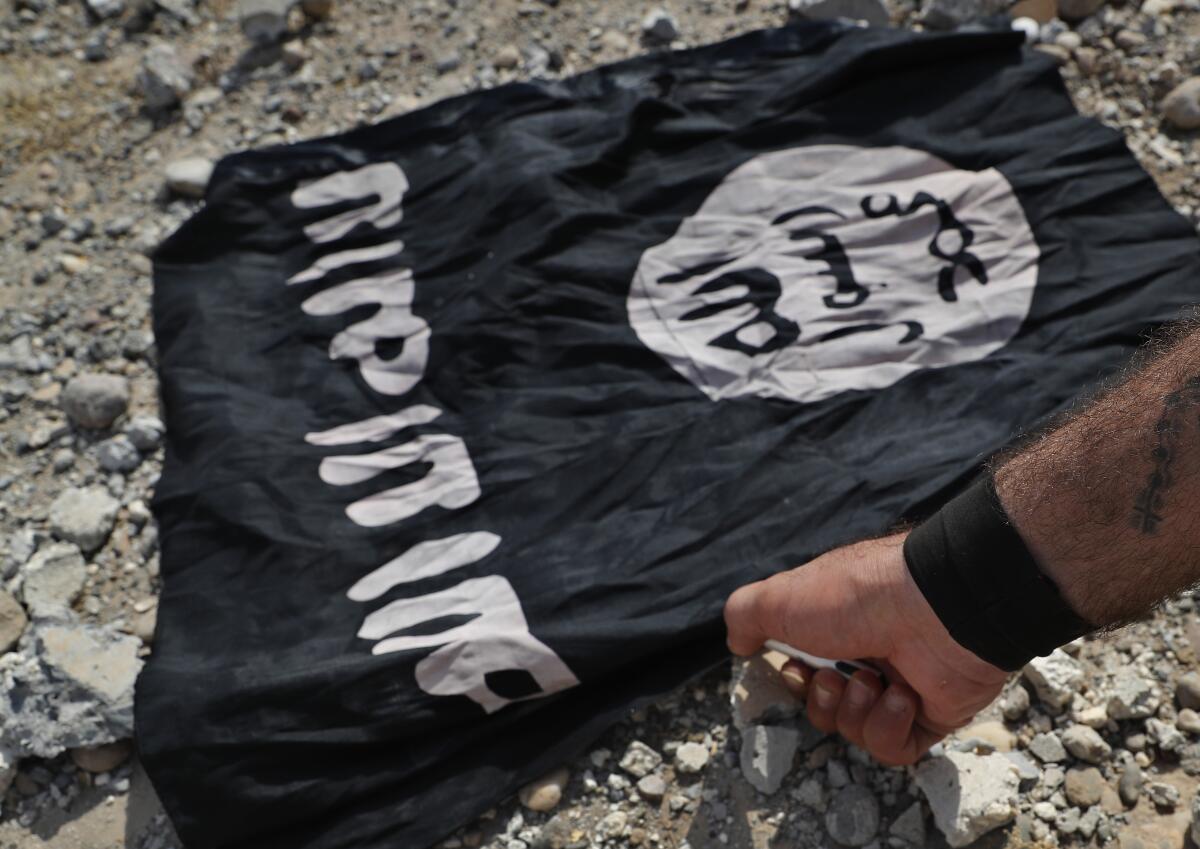
- Share via
BEIRUT — Islamic State leader Abu Hassan Hashimi Qurayshi was killed in battle recently, the group’s spokesman said in audio released Wednesday. He gave no further details.
Qurayshi is the second Islamic State leader to be killed this year at a time when the extremist group has been trying to rise again with its sleeper cells carrying out deadly attacks in Iraq and Syria. Its affiliate in Afghanistan also claimed attacks that killed dozens in recent months.
Little had been known about Qurayshi, who took over the group’s leadership after the death of his predecessor, Abu Ibrahim Hashimi Qurayshi, in a U.S. raid in February in northwestern Syria.
None of the Qurayshis are believed to be related. Qurayshi is not their real name but comes from Quraish, the name of the tribe that Islam’s Prophet Muhammad belonged to. Islamic State claims its leaders hail from this tribe and “Qurayshi” serves as part of an Islamic State leader’s nom de guerre.
The death marked a blow to the group that was defeated in Iraq in 2017 and in Syria two years later. The announcement by Islamic State spokesman Abu Omar Muhajer came at a time when the group has been trying to carry out deadly attacks in parts of Syria and Iraq that the extremists once declared a caliphate.
The Syrian city of Raqqa, the former de facto capital of Islamic State, is now free of the extremist group, but many residents are leaving anyway.
“He died fighting the enemies of God, killing some of them before being killed like a man on the battlefield,” Muhajer said.
Muhajer said that Abu Hussein Husseini Qurayshi was named as the group’s new leader.
“He is one of the veteran warriors and one of the loyal sons of the Islamic State,” Muhajer said. Little is also known about Abu Hussein Husseini Qurayshi.
Asked in Washington about Qurayshi’s death, U.S. National Security Council spokesman John F. Kirby said: “We certainly welcome the news of the death of another ISIS leader. I don’t have any additional operational details to provide at this time.”
Qurayshi is the third leader to be killed since founder Abu Bakr Baghdadi was hunted down by the Americans in a raid in Syria in October 2019.
U.S. officials say U.S. forces killed three senior Islamic State leaders in two separate military operations in Syria on Thursday.
No one claimed responsibility for the killing.
On Wednesday, a bomb blast hit a religious school in northern Afghanistan, killing at least 10 students, a Taliban official said. There was no immediate claim of responsibility, but the Afghan affiliate of Islamic State has been waging a campaign of violence that escalated since the Taliban took power in August 2021.
Earlier this month, Islamic State militants attacked an Iraqi army position in the northwestern province of Kirkuk, killing four soldiers.
Islamic State broke away from Al Qaeda about a decade ago and ended up controlling large parts of northern and eastern Syria as well as northern and western Iraq. In 2014, the extremists declared their so-called caliphate. attracting supporters from around the world.
Abdullahi Ahmed Abdullahi helped Canadians and Americans join the IS group and funded ‘violent acts of terrorism,’ including the kidnapping and killing of people in Syria, a U.S. attorney said.
In the following years, they claimed responsibility for attacks throughout the world that killed and wounded hundreds of people before coming under attack from different sides. The group used social media to demonstrate its brutality, releasing videos of people being beheaded, drowned in pools while locked in metal cages or set on fire after being doused with gasoline.
In March 2019, U.S.-backed Syrian fighters captured the last sliver of land the extremists once held in Syria’s eastern province of Dair Alzour, which borders Iraq. Since then, Islamic State fighters have been carrying out sporadic attacks.
More to Read
Sign up for Essential California
The most important California stories and recommendations in your inbox every morning.
You may occasionally receive promotional content from the Los Angeles Times.
